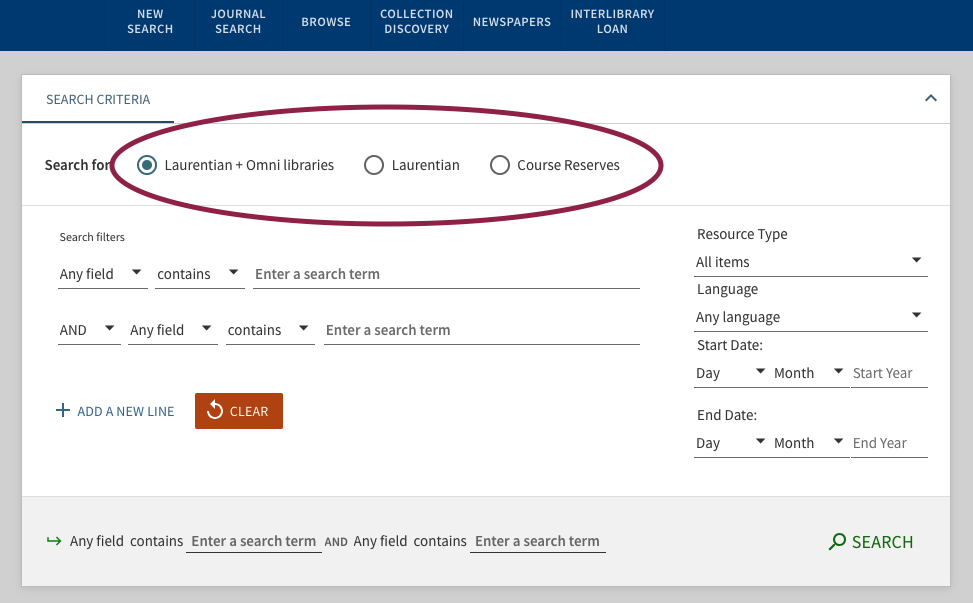Omni is a search tool that searches books, articles, and many other types of resources to ease your research efforts. Laurentian University Library and Archives collaborates with many other University Libraries in Ontario to standardize the searching and make it easier to borrow from other libraries.
What can we find searching Omni?
Results in Omni will include:
- Books
- Articles (including peer-reviewed articles)
- Newspapers
- Journals
- Videos
- Government reports
- Theses
- And more…
The results will include all formats: electronic, print, audio, and video.
There are three options to pick from when searching Omni.
Laurentian + Omni Libraries – The default setting is a search of Laurentian + Omni Libraries which will generate results that include items in the collections at Laurentian University and all our partner University Libraries.
Laurentian – a search of Laurentian gives results that include items in the collections at Laurentian University Libraries.
Course Reserves – a search of Course Reserves gives results for items that have been placed on reserve by professors. The reserves are items that are kept at the library desk and do not circulate but can be used in the library.


Tip
Sign in to your account before beginning your search. Use your LU ID to sign in. By signing in, you get:
Get direct access to electronic resources that are available only to those that have an LU ID.
Check your library account.
Save records and your search history.
Create alerts.